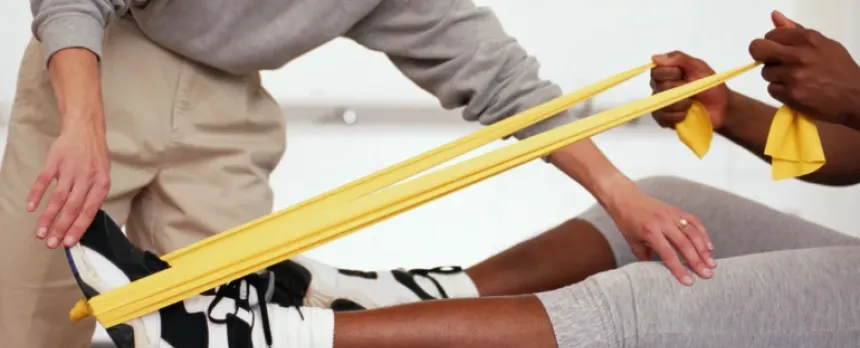Who Is at Risk for ACL Injuries?

Athletes cower at the mention of anterior cruciate ligament (ACL) injuries. Depending on how badly it's torn, the injury can put an athlete out for an entire season, even Tom Brady had to sit out a season because of his ACL injury. Your ACL is one of four ligaments that work to stabilize the knee and is essential in starting to run, turning and stopping quickly. With that said, it's easy to figure out that if that ligament fails, then things can go wrong quickly.
Who's at Risk for an ACL Injury?
ACL injuries are caused by a sudden twisting motion and while most athletes are at risk, female athletes seem to be the ones most susceptible. According to the National Collegiate Athletic Association, females are about three times more likely to get an ACL injury than males. This could be due to higher estrogen levels that cause the ligaments to be looser and provide less protection. It could also be due to the fact that females tend to have smaller ACLs than males, leaving them more susceptible.
How Do I Prevent an ACL Injury?
When you're an athlete, no one wants to be out for an entire season or have an injury that requires surgery, so how do you prevent it? It comes down to practice and proper form. Think stretch, strength, balance. Try the following exercises to prep your body against an ACL injury before it happens.
- Jogging - Warm up by running forward, backward and sideways.
- Squats - Strengthen the thigh muscles through a full range-of-motion. Try walking lunges that are slow and controlled.
- Hips - Strengthen the side of your hip with monster walks with resistance bands around your knees or ankles.
- Core - Try planks and side planks.
- Jumps - Keep your knees bent and chest high, and use your core strength to land softly and with control. Progress from jumping with both legs to single leg jumps/plyometrics.
Do these exercises to get your body familiar with the movement until it's second nature. Remember it's about quality of your form, not how fast you can get through your exercises.
Note: The content of this blog is for informational purposes only. It is not intended for use as diagnosis or treatment of a health problem or as a substitute for the professional consultation of a physician or qualified health care provider. If you have specific questions or concerns regarding a health or medical condition, contact your physician or a licensed health care professional.




